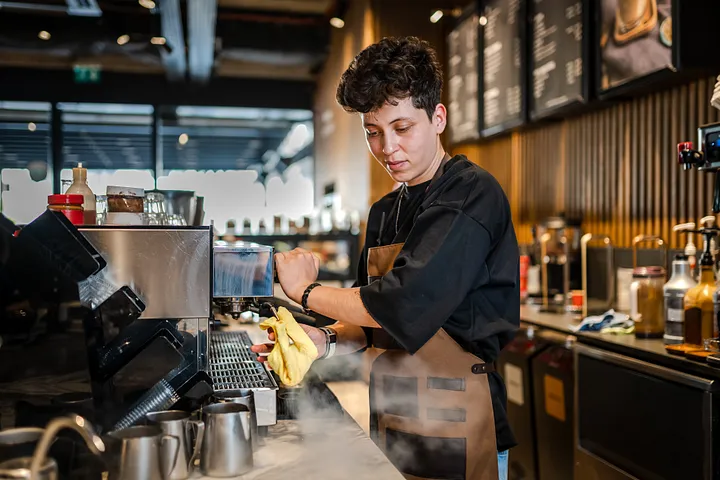In hospitality, we’re often taught to chase the numbers occupancy rates, RevPAR, NPS scores. But those metrics, while valuable, only tell half the story. True success in this sector isn’t solely captured on spreadsheets. It’s measured in the emotional resonance we create the sense of belonging, familiarity, and shared purpose that draws people back again and again.
What if, instead of seeing ourselves as service providers, we began to see our venues as community anchors places where human connection thrives? And what if Human Resources, often tucked away in compliance and contracts, emerged as the quiet architect of this transformation?
This isn’t wishful thinking. It’s a practical shift we’ve already seen ripple through quick-service giants and boutique brands alike. When HR leads with intention, hospitality businesses evolve into vibrant, people-powered ecosystems. Not just places to stay but places to belong.
1. Redesigning Atmosphere from the Inside Out
Walk into any well-run hotel or restaurant and you’ll sense it an unspoken harmony between space and spirit. But that harmony starts long before the guest walks in. It begins with the team.
Operational precision meets emotional design when HR champions the internal environment with as much care as the guest-facing one.
- Workspaces with Purpose: Move beyond perfunctory break rooms. Create restorative zones, flexible shifts, and access to mental wellbeing support. A team that feels seen brings warmth to the guest experience without ever being asked.
- Cultures of Inclusion: Inclusion is more than hiring targets it’s lived experience. When HR embeds cultural fluency into policy and practice, the workplace becomes a space where all voices feel heard.
- Training as Empowerment: Go further than onboarding. Offer emotionally intelligent learning conflict de-escalation, cross-cultural communication, and real-time empathy. This equips staff not just to serve, but to connect.
A team that feels safe, respected, and skilled naturally cultivates spaces that guests describe as welcoming even if they can’t quite explain why.
2. Bridging the Business and the Block
Hospitality has always thrived on footfall. But in an age of hyperlocal trust and values-driven consumerism, businesses must become more than destinations they must become neighbours.
HR can act as the bridge between operational goals and local relevance.
- Community-Led Programmes: Empower staff to lead school drives, food bank partnerships, or local litter initiatives. These aren’t just good PR — they’re tangible acts of purpose that instil pride internally and credibility externally.
- Strategic Local Alliances: Partner with nearby colleges, social enterprises, or shelters. These partnerships strengthen the talent pipeline, while embedding the brand into the very fabric of the neighbourhood.
- Visible Recognition: Celebrate team members who drive impact beyond the building. Whether that’s a wall of fame or local press features, it shows the business values more than just output it values humanity.
When hospitality becomes a force for good in its postcode, it creates loyalty that no points scheme ever could.
3. Reimagining Social Energy on the Shop Floor
You can spot a connected team from across the lobby the glances, the rhythm, the unspoken support. That cohesion doesn’t happen by accident. It’s designed.
And in a post-pandemic world, where connection is craved more than ever, HR has a renewed mandate to foster internal social ecosystems.
- Moments that Matter: Away days are great, but don’t underestimate the power of daily rituals morning huddles, shared meals, or post-shift acknowledgements. These micro-moments stitch together the social fabric.
- Open-Channel Communication: Tear down hierarchical barriers. Foster WhatsApp groups, feedback loops, town halls. Create channels where stories flow and voices rise without fear.
- Deep Customer Engagement: Go beyond transactional training. Teach your people to read the room to sense when a guest needs a laugh, a pause, or a listening ear. These are the soft skills that drive hard results.
When teams bond, customers feel it. They’re not greeted by service they’re welcomed by synergy.
4. From Perks to Purpose: Rebuilding Loyalty from the Inside
Loyalty schemes are often built around spreadsheets who stayed longest, who sold most. But true loyalty doesn’t come from targets. It comes from trust.
HR can pivot loyalty programmes from the transactional to the transformative.
- Values-Based Recognition: Swap generic accolades for intentional acknowledgements someone who went the extra mile for an elderly guest, or who quietly mentored a new joiner. Celebrate the unseen, and it becomes the culture.
- Personalised Rewards: Understand what matters to each employee. For some it’s a day off to attend their child’s play; for others, it’s career coaching or attending a hospitality summit. One-size-fits-all rarely fits anyone.
- Peer-Led Applause: Introduce platforms for colleagues to uplift one another. When appreciation comes from your teammates, it builds a web of trust stronger than any annual review ever could.
In this reframed model, loyalty isn’t bought it’s built.
5. Becoming a Mirror to the Community’s Values
In an era where guests choose brands that align with their beliefs, your business needs to walk the talk. That integrity starts with HR.
Human Resources isn’t just the gatekeeper of policy it’s the moral compass of the business.
- Inclusive Hiring: From recruitment ads to interview panels, ensure equity isn’t performative it’s structural. Representation matters, but belonging matters more.
- Green Thinking from the Ground Up: Work with procurement and facilities to rethink your supply chain. Whether it’s reducing plastic waste or partnering with sustainable growers, these decisions ripple out to guests who care.
- Ethical Role Modelling: Train leaders to lead with empathy, fairness, and clarity. A culture where wrongdoing is confronted not concealed — is a culture where people stay, grow, and advocate.
When your internal values align with external expectations, your reputation becomes your greatest asset.
The HR-Driven Renaissance
This isn’t a call for idealism it’s a blueprint for competitive advantage.
When HR leads with intention, hospitality businesses no longer operate as silos of service. They evolve into centres of belonging for guests, teams, and communities alike.
It’s here, in this convergence of culture and commerce, that the true magic of hospitality is reborn.





